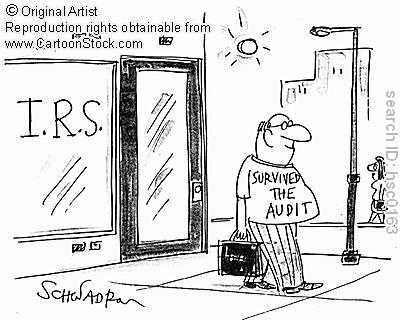Racial profiling: two ambiguities


What is profiling?
Let's start from the basics. What is profiling (in general, not only racial profiling)? Typically profiling is used by police officers to investigate crimes. A profile associates members of a particular category of people with particular crimes, on the basis of statistical differences in crime rates. For instance, suppose statistical data tell us that lawyers from San Francisco, while filing their taxes, are more likely to overstate their tax deductions than the average American. And suppose that, on the basis of this statistical correlation, IRS officials will look more closely at the tax deductions filed by lawyers from San Francisco than they do in the case of people who are not San Francisco lawyers. If IRS officials do that, then they are using a profile to investigate the crime of tax evasion.
The success and importance of profiling should not be overlooked. The IRS uses profling all the time to check for irregularities and mistakes in tax forms. It would be impossible to examine, individually, each tax form that is filed. So, it is inevitable that only certain category of people -- which are believed to be more likely to evade taxes -- are targeted and checked more throughly. Customs officials use racial profiling to search only certain people with certain characteristics. If they were to search everyone in depth, lines in airports will last months.
The importance of sound statistical correlations. Profiling is useful and can be effective in fighting crime, as long as it is based on sound statistical data which show an effective correlation between belonging to a certain group of people and committing a certain crime.
The Mad Bomber. In a well-documented book, Frederick Schauer (Profile, Probabilities and Stereotypes, 2003, Belknap Press) tells us of one of the first examples of profiling in police investigation. In the early 1950s, New York was plagued by several bombings in public spaces (theaters, railroad stations, etc.). The perpetrator left messages on the scene of the bombing and he was dubbed The Mad Bomber. Police investigators asked psychiatrician Dr. Brussel to examine the sites of the bombings and the messages left by The Mad Bomber. Dr Brussel came up with a very detailed profile of the possible criminal. The profile included things like: serious heart conditions, probably overweight, Polish descent, middle-aged, Roman-Catholic and -- strangely enough - wearing a buttoned double-breasted suit.
On the basis of Brussel's profile and other information, the police focused on one man, Metesky. When the police knocked at the door of his house, Metesky was wearing house clothes and he asked to be allowed to change. When he came back he was wering a double-breasted suit. And he was wearing it buttoned! The success of Dr. Brussell was striking and since then, profiling has been increasingly used.
(To know more on Metesky and the Mad Bomber, look here.)
Dr. Brussell's statistical analyses were meticulous, hence they were effective and incredibly useful. However, if the statistical correlations aren't sound, but they are simply made up in a quite amateur way by police officers on the basis of their instincts or gut feelings, profiling is not going to to be very useful because it is unlikely to track the actual perpetrators of the crime under investigation.

What is racial profiling?
Racial profiling is a type of profiling in which members of a racial group are associated to particular crimes. A more careful definition is available on the US Amnesty International web-site, under racial profiling:
Racial profiling occurs when race is used by law enforcement or private security officials, to any degree, as a basis for criminal suspicion in non-suspect specific investigations.

Two ambiguities
This definition embodies two fundamental ambiguities in the talk of racial profiling that are worth pointing out. I do not want to undermine the badness of racial profiling itself. Rather, I want to clarify what we are talking about. (For an excellent summary of arguments against racial profiling look here.)
First ambiguity: proportionate vs. disproportionate use of race. The Amnesty International definition quoted above classifies as racial profiling any use of race or ethnicity -- to any degree -- in police investigations. This seems to be too much and over-inclusive. Under the Amnesty International definition, Dr. Brussell's profiling would count as racial profiling because it used the attribute 'Polish descent.' It seems more appropriate to define racial profiling in terms of a disproportionate or almost exclusive use of race for the purpose of criminal investigations.
But where exactly are we to draw the boundary between proportionate and disproportionate use of race? This is a difficult, and open, question.
Second ambiguity: race-based descriptions. The second ambiguity is more subtle. Richard Banks from Stanford Law school drew attention on it in an article published on the UCLA Law Review in 2001 (Race-base suspect selection and colorblind equal protection doctrine and discourse). Banks observes that the use of race in criminal investigations is perfectly accepted -- in the sense that, for instance, no civil rights movement has ever complained about that -- whenever an eyewitness gives a race-based description of the supposed criminal (e.g., he is black, tall, middle-aged, etc.). Police officers will then use the race-based description to investigate the crime (e.g., by questioning people who fit the description). The use of race, instead, is regarded as unjust or unfair by many whenever it is a police officer who uses a racial profile to investigate a certain crime. Why this distinction? Why a race-based identifying description is considered fine, while racial profiling used by a police officer is not?
Notice that this distinction underlies the Amnesty international definition I quoted before. For the definition implicitly says that the use of a racial profile is allowed when we are in "suspect specific investigation." And a suspect specific investigation occurs when an eyewitness gives a description of the criminal in which race has a prevalent role.
Banks argues that race-based descriptions subject racial minorities to increased detention, investigation, and mistreatment by police officers. Further, since race-based descriptions come from eyewitnesses and the unreliability of eyewitness testimony is well-known (especially with respect to cross-racial identifications), race-base descriptions are unlikely to be very useful to track criminals. Low reliability and unfair subjection of racial minorities to detention and investigation are common (and good) objections against racial profiling used by police officers. But if they apply equally well to race-based descriptions, it is unclear why we should not be worried about the use of race-based descriptions, as well.
Complexion, not race. An even stronger claim is made by August Walker in The Color of Crime: The Case Against Race-Based Suspect Descriptions (Published on Columbia Law Review in 2003 -- abstract available herehere). Walker's suggestion is to do away with race-based descriptions altogether and focus on complexion, not race, by developing a universal complexion chart.




